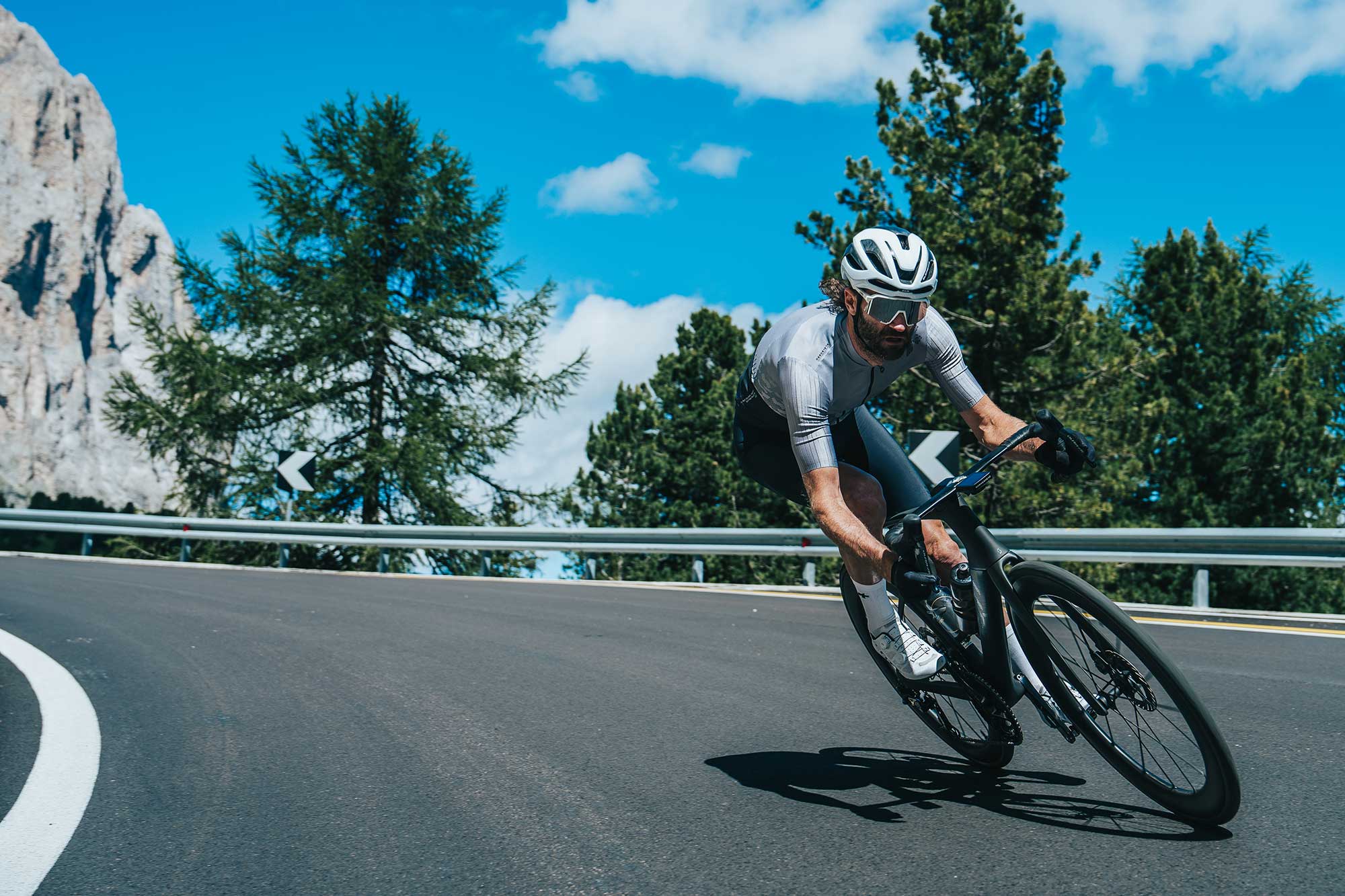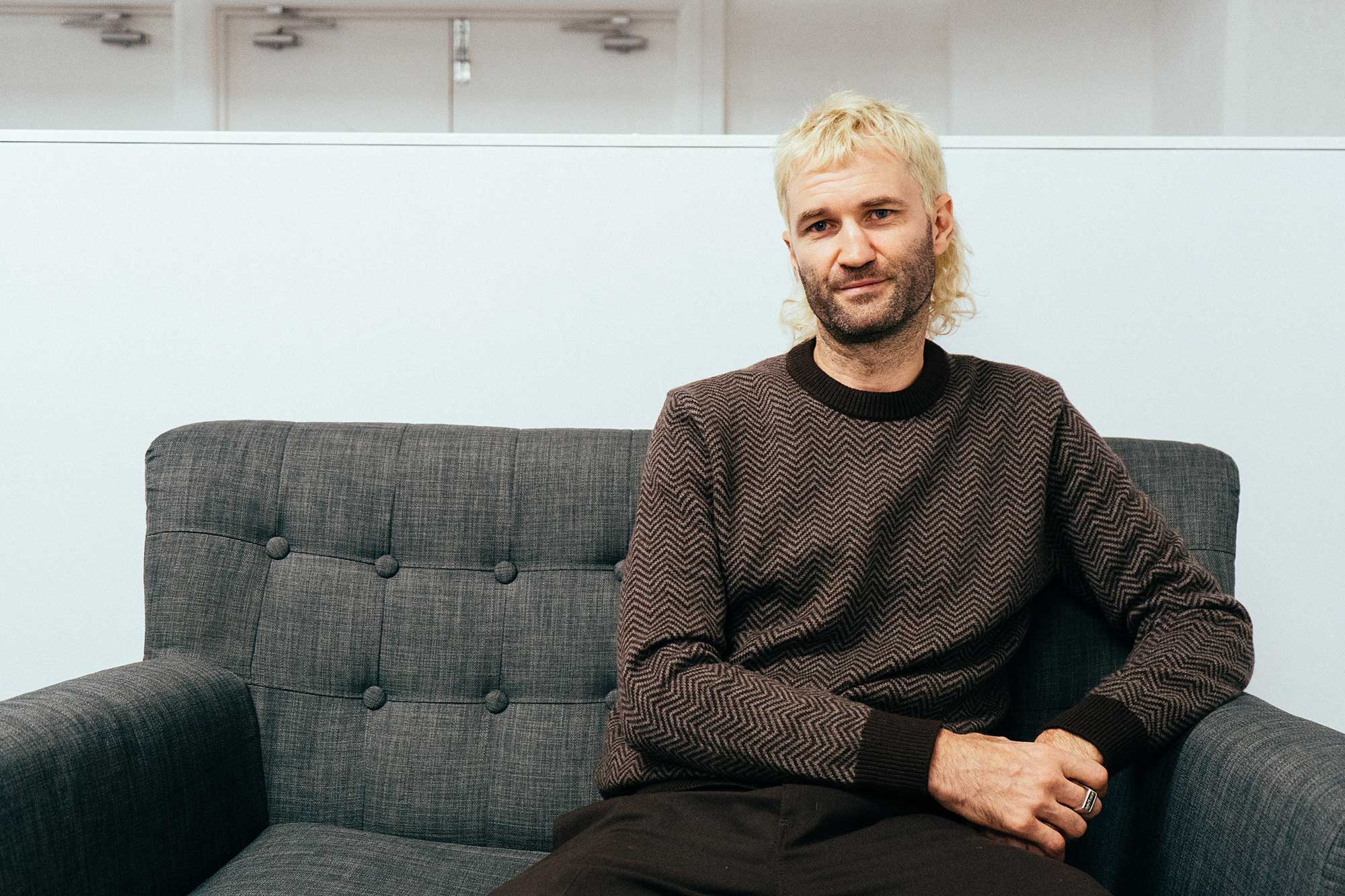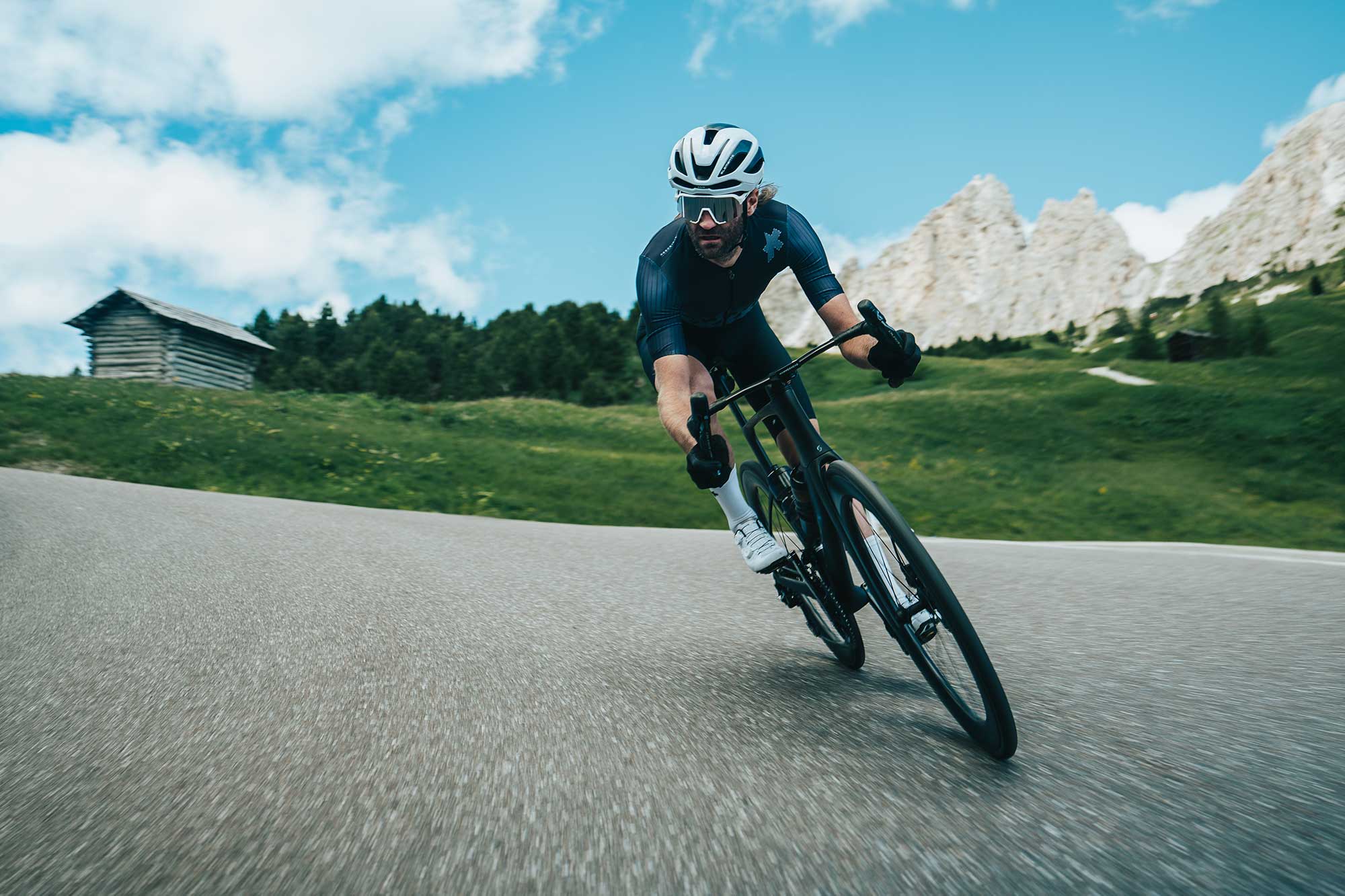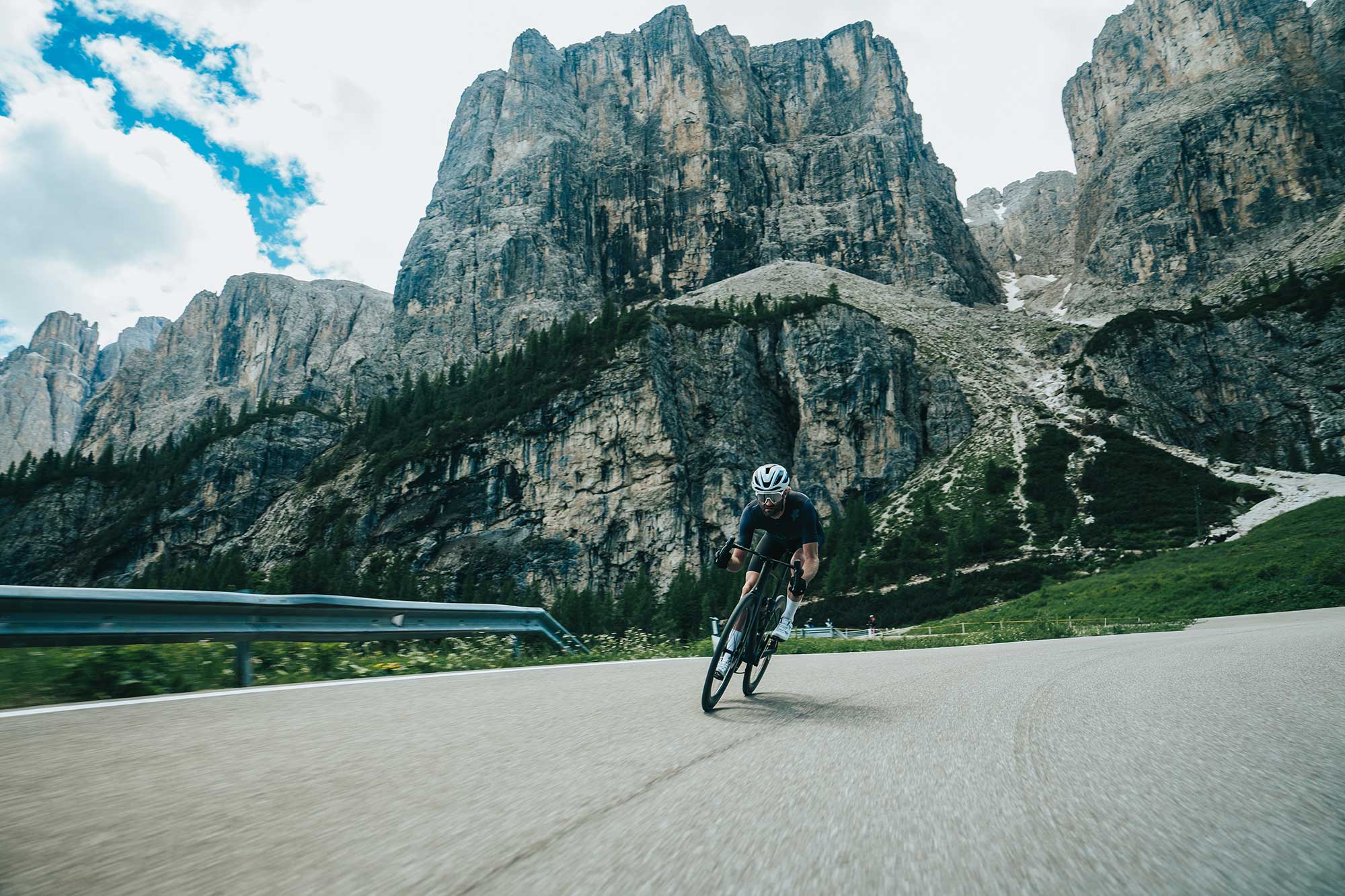
There's a high likelihood that even if you've never heard of the name Safa Brian, you've seen him ride a bike. His daring riding style sees him tackle descents across the world at breakneck speed in a bid to remind his audience not just of cycling's raw beauty but also that less is almost certainly more.
Brian Wagner, better known as 'Safa Brian', has been shaped by a life that has revolved around bikes, even if he was nearly 30 by the time he clipped into the pedals of a road bike for the first time.
Spending 18 years as a bike messenger provided the South African with skills that few WorldTour pros could ever write on their résumés. Sydney, London, Mexico City, Glasgow, and New York - their business districts, his playground.
Now based in Los Angeles, the cyclist's YouTube channel has over half a million subscribers. His earliest upload from 2013, titled Less Law - Mexico City Fixed Gear Legends, is a promotional video for the following year's Cycle Messenger World Championships. It would leave even the best bike handlers in the WorldTour bunch feeling nauseous as he cuts through traffic in the Central American capital, arcing his body at precarious angles as he skirts around lorries, buses, and pedestrians.
Yet when that lifestyle eventually began to wear thin, Brian found himself looking for an escape. "I started riding outside of the city to get away from all the traffic. I wanted to get away from cars and traffic, car culture gets really toxic after that long, you just burn out on it. So I fell in love with climbing, but more to find peace than adrenaline," he tells Cyclingnews during our sit-down chat at November's Rouleur Live event.
Cycling uphill can be considered a formulaic challenge - even for amateur cyclists. The professional peloton, or at least at the Grand Tours, has been consumed by the demands of climbing mountains as fast as possible for more than a century. The first summit finish of a Tour de France stage dates back to 1910, with the race recognising the best climbers through the King of the Mountains classification since 1933.
Skip forward to the modern day, and altitude training, power data, lightweight bikes, and even, unfortunately, doping attest to cycling's unrelenting desire and obsession with climbing faster and faster.
However, descending those same mountains and peaks is an altogether different beast. For Brian, no other part of cycling can compare.

Cycling's last mystique
"I think descending is the last bit of road cycling that has any kind of mystery and mystique left. Everything else is boiled down to the number, feeding at the perfect time, and it's all science really.
"You can really get lost in [the descent] and feel a special kind of way," he explained.
Some descents might not set the world alight in terms of their nature, while others require the utmost concentration and no room for error, but any stresses quickly fade once the red light is flashing and the gradient goes downhill for the South African.
"Maybe you're stressed out at the top knowing you're going to go and film this. You do get nervous. You do get stressed. But as soon as you hit record and you drop in, it all kind of just clicks away. There's a switch you can flick."

Having hit speeds of 110km/h during descents in the past, the question of whether Brian has reached his limit is one he responded to with an honest self-assessment.
"I'm always getting better, now I find myself taking even safer lines than before. The older you get, the more risk-averse you become. It's just human nature."
Safer doesn't necessarily mean slower, though, as Brian points out. "But I'm actually getting slightly faster on descents that I've done a few times, even though I feel like it's safer, I think that just means I've become a better rider, and my technique is better."
Balancing safety and danger is a challenge Brian has faced for his entire life, stemming from his childhood in South Africa.
"We grew up in South Africa, it's a pretty dangerous place at times, and then the job I ended up doing and loving was a pretty dangerous job. My whole life has kind of been dealing with danger and not losing your cool.

Having lived further out of town than the rest of his friends during his formative years, Brian saw his bike as his "number one companion."
From riding his bike to meet up with his mates, to ferociously pedalling through traffic in bustling capital cities, it's shaped the South African's riding style.
"What I can do on the road now, with the high-speed stuff, a lot of it is more mental than anything else. Just being in traffic all day, and having all these situations pop up, having to deal with them, to literally stay alive, made a huge impact on what I do today," he confessed.
A taste of the WorldTour
"People think I've done this forever," Brian reveals, so effortlessly cool does his approach to descending look. The often-used phrase 'at one with the bike' wouldn't be ill-placed to describe his rides down the Passo Sella in the Dolomites or Switzerland's iconic Furka Pass.
However, he's quick to add that this assumption that he's been descending mountain passes since he could first pedal a bike in anger just isn't the case, stating: "I only picked up a road bike at 27, or 28 years old. So I still had a lot to learn. I'm still learning."
Even if he defines himself as a work in progress, though, there's no denying that his skillset is rare.
At the start of his latest film Trust, created in collaboration with helmet brand KASK, Brian acknowledges: "It's kind of like a superpower being able to go this fast. If a lot of people could do what I do, I think they would."
That may be why the South African has gained WorldTour attention in recent years. In today's digital age, access to the sport's top pros has become more guarded, yet Brian has managed to break down those barriers, thanks in part, by being able to keep up.
Alongside an element of luck and being in the right place at the right time, he puts it down to the professionals having a stronger understanding of his technical ability than a regular viewer might.
"People see the videos, and they go 'this is crazy', but I think a lot of the pros see it and identify with it. That's how they ride, they don't go and learn to get fast in a race. They have to practice on open roads too. So to them, I think it looks more sane than most people, and they can trust that I can handle myself close to them."
Being able to be on par with the pros has helped Brian to raise his profile in the sport, with both Scott and KASK currently sponsoring him and his endeavours around the globe.

"I think there are a lot of cycling brands that are struggling to find an avenue besides racing, and it's really hard to work with the pro teams to create content. I'm one of the few people going at the same speed and pushing the bike as hard.
"Obviously, I'm not doing the same power as Pogačar on the climb, but I'm going through a corner at 80km/h and testing stuff showing that it is fast and it's reliable. So I think it's a good match."
The likes of Tom Pidcock, Matteo Jorgenson, Romain Bardet (and most of DSM-firmenich PostNL), Fabian Cancellara, and Vincenzo Nibali have all hit the road with the South African and his camera.
Unsurprisingly though, it was his film with Pidcock, multi-discipline star and one of the WorldTour's most renowned descenders, on LA's Tuna Canyon descent that truly captured the attention of the cycling world. Even if Brian described the experience as "a really stressful day" on the mountain pass he's descended as many as 200 times.

"Tuna is really intense every time, there's huge drop-offs and there's a wall the whole way down the other side, so there's zero margin for error. There's no runoff and it's really steep.
"I didn't want anything to go wrong for him. I took him down there a couple of times, him following me so we could learn the lines a lot quicker. The whole day I was just telling myself, 'he's a pro, it's not a big deal for him. He's not going to send it that hard.'
"As soon as we started going, I'm like, 'he's not holding anything back.'"
Even when the Briton's back wheel skids out on a patch of oil - causing the hearts of Brian and all 2.6 million of the film's viewers to jump - it didn't deter him from attacking the rest of the descent and pushing his limits.
According to Strava, he completed the segment just eight seconds slower than the KoM, set by none other than - and still held by - Safa Brian.
The beauty of the descent
Pidcock and Brian share the same adrenaline-inducing approach to descending, with their film together only echoing this. It was Pidcock's breathtaking descent of the Col du Galibier that set up an iconic stage win atop Alpe d'Huez, the Queen stage of the 2023 Tour de France.
In this social media age, you can't go two weeks without the video of his nerve-wracking, hairpin-hugging descent in the Alps hitting your phone screen. "It's beautiful to watch a confident descender," remarked ex-pro Dan Lloyd while commentating on Eurosport.
Brian's descending skills are equally mesmerising to the eye. His minimalistic cinematic style creates an almost therapeutic effect within his films: just Brian, the bike, and the surrounding scenery.
In the South African's eyes, the landscapes that form the backdrops of his films are often just as important as the rides themselves - if not the film's sole purpose on occasion, he admits.
"Half the time I think it's really the location that is doing the heavy lifting for me, and cycling is just a beautiful thing to do.

"There's so much content out there with people talking for more than they're riding in the videos. And I was always skipping forward and looking for the bits where they're actually riding the bikes.
"I started out filming stuff that I wanted to film, just for no other reason than I thought it looked cool and I wanted to film it," he added.
There's no question that cycling at a professional level will continue to advance its obsession with data, numbers, and records. It's ultimately what keeps those at the top of the sport hungry.
Yet, in this data-driven age, the South African stands as a stark reminder that not all of the sport is about the formulas, the feeding plans, and the science. Whether it be the unquantifiable feeling that comes from descending or just the sheer joy of riding your bike to explore more of the world, Brian highlights those components of cycling that aren't so easily defined.







